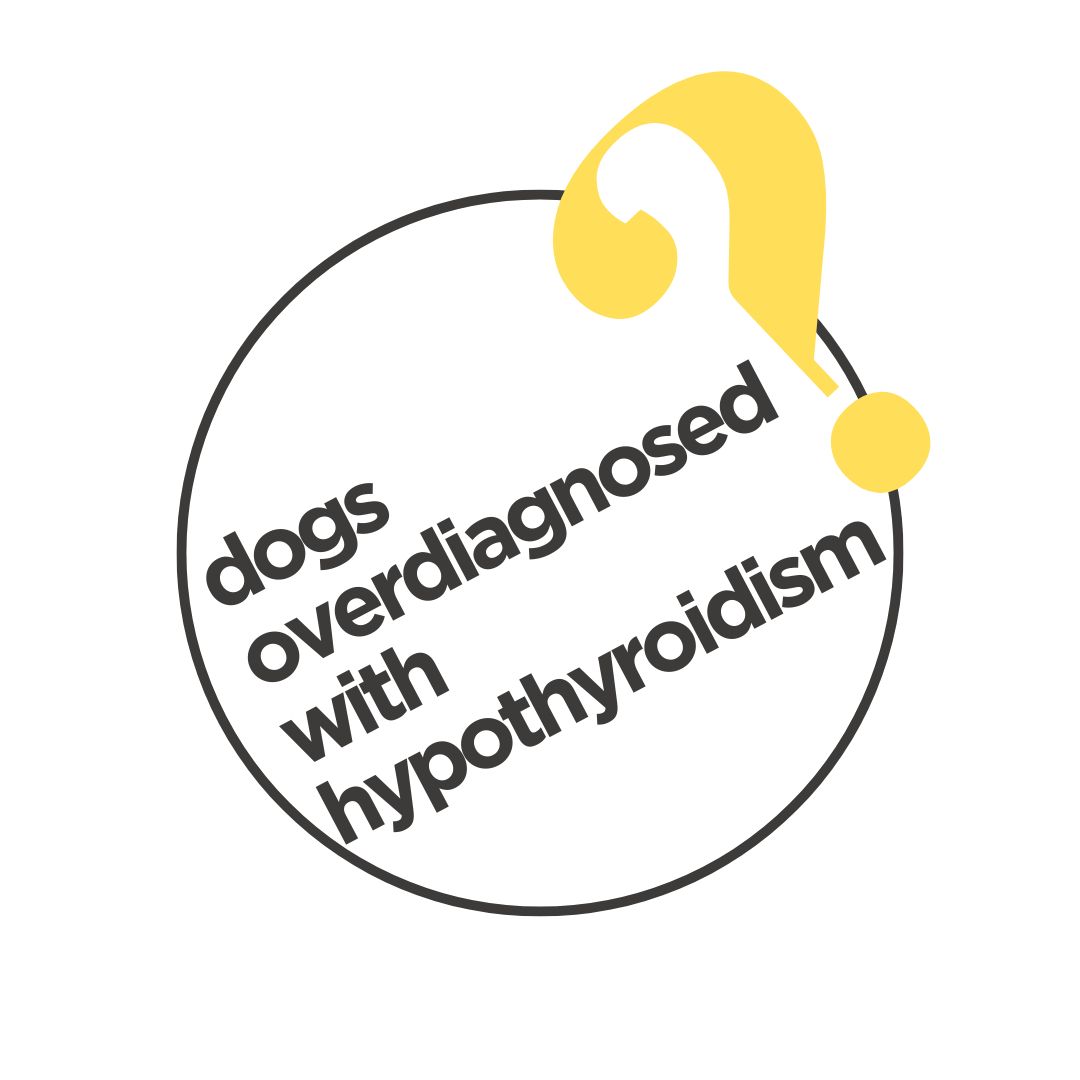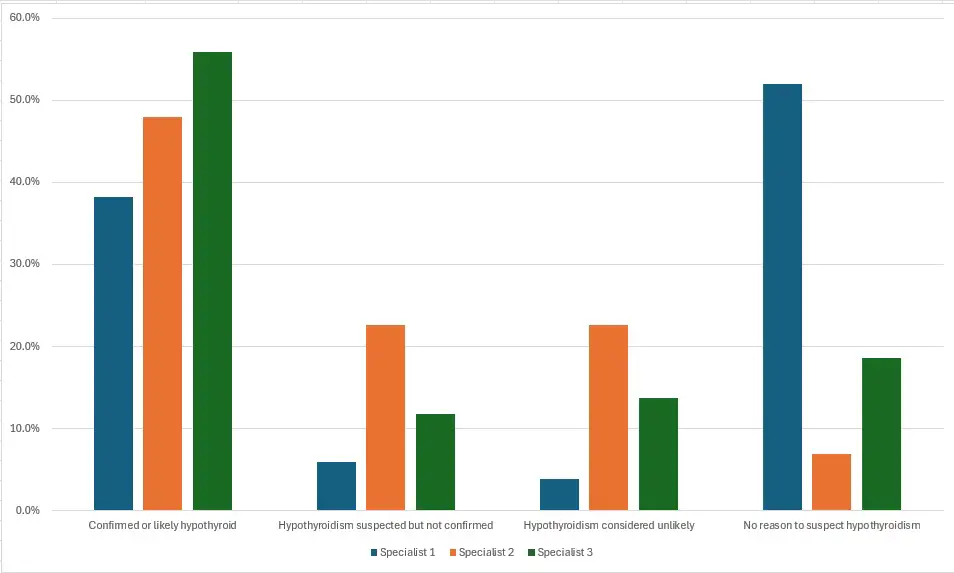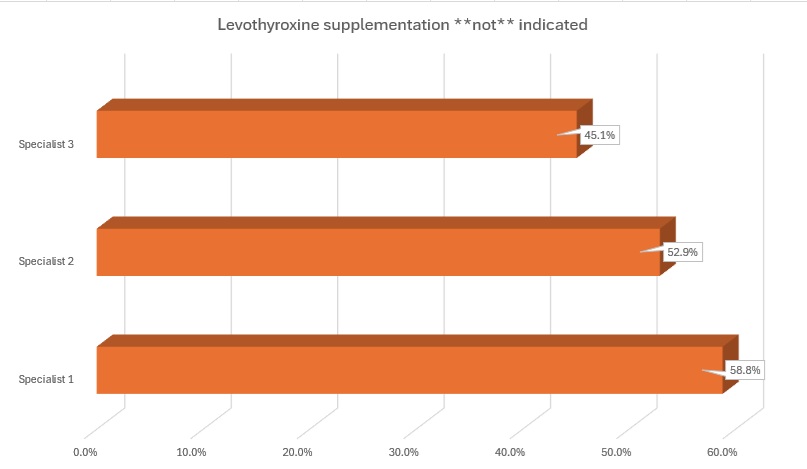Hypothyroidism in Dogs and False-Positive Tests

A study published in 2024 set up blind, independent case reviews with 3 different board-certified veterinary internal medicine specialists to gauge the likelihood of dogs actually being hypothyroid based on routine blood test results that found low total T4. The premise is that overdiagnosis of hypothyroidism in dogs is possible. Here’s what those specialists thought.
Canine Hypothyroidism Study Overview
Essentially, the 3 specialists looked at the veterinary medical records of 102 dogs who’d been prescribed levothyroxine at general veterinary practices.
- All of the cases included T4 measurements.
- 89.2% of the cases had T4 below the reference interval (aka “low thyroid numbers”)
- 10.8% of the cases had T4 within the reference interval (aka “normal thyroid numbers”)
The thyroid tests in 28.4% of the cases got done as part of routine blood work. In other words, those dogs did not seem sick or show any other signs of hypothyroidism.
Is It or Isn’t It Real Low Thyroid?
For each of the 102 cases, each of the 3 specialists assigned 1 of 4 designations.
- Confirmed or likely hypothyroid
- Hypothyroidism suspected but not confirmed
- Hypothyroidism considered unlikely
- No reason to suspect hypothyroidism
| Specialist 1 | Specialist 2 | Specialist 3 | |
| Confirmed or likely hypothyroid | 38.2% | 48.0% | 55.9% |
| Hypothyroidism suspected but not confirmed | 5.9% | 22.6% | 11.8% |
| Hypothyroidism considered unlikely | 3.9% | 22.6% | 13.7% |
| No reason to suspect hypothyroidism | 52.0% | 6.9% | 18.6% |

Levothyroxine Supplementation NOT Indicated
- Specialist 1 noted that 58.8% of the cases did not need treatment with meds.
- Specialist 2 said the same for 52.9% of the cases.
- Specialist 3 said the same for 45.1% of the cases.

Study Conclusion
“These results support the concern that hypothyroidism might be overly and incorrectly diagnosed in first opinion practice, and that thyroid function testing should be performed only in those dogs with a high pretest probability of the disease.”
What Does That Mean For Your Dog?
Essentially, the study authors recommend rechecking T4 levels 3 months later, if an otherwise healthy dog’s routine blood work shows low thyroid levels.
In Real Life
We found ourselves in this situation a couple years ago with Tori. Our veterinarian did recommend treatment with daily levothyroxine, and we check her thyroid values on meds each year. I will say that a couple of my veterinarian pals though this might not be a true case of hypothyroidism in dogs since Tori didn’t really seem to have any other symptoms. At the same time, our DVM knows Tori best. We followed her lead.
